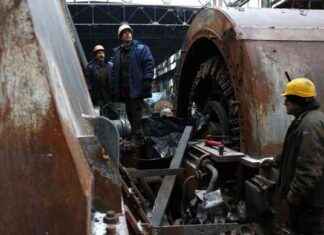The Parliament of Kosovo has taken a firm step to the front in order to consolidate the sovereignty of a small country on balkan —a former autonomous province of yugoslavia that declared its independence unilaterally from Serbia in 2008— with an Army of their own. With the strong support of the US, becoming more proactive in security issues in the Balkans, the movement of Pristina has stressed the precarious balance with Belgrade, upset in November with the imposition of customs controls to products serbs, and threatens to escalate into an open confrontation between the two countries following a frustrated attempt last summer to resolve their differences through a new border demarcation. The EU, the UN and NATO have complained that the decision of Pristina by untimely, while Washington welcomed “this contribution to peace and security in the region”.
With the absence of the 13 members of the Serbian minority, the 107 legislators remaining approved this Friday the draft law to expand the mandate and composition of the current Security Force in Kovoso (KSF, its acronym in English), with some 2,500 troops, up to 5,000, more to 3,000 reservists, as well as to create a Ministry of Defense. While the north of Mitrovica, a symbol of the division between the two communities, filled with flags Serbian, the south of the city and the rest of Kosovo was turned into a flaming of teach us. In the north of the former autonomous province are home to around 100,000 serbs, of a population of 1.8 million people.
MORE INFORMATION
Past versus future in the Balkans, Serbia and Kosovo is raised to correct your border to close the deal Women of Kosovo, doubly victims of war
“After two decades of hard work, we culminate by the end of the process of building a State,” he said Friday on the social network Facebook the president of kosovo, Hashim Thaci, former commander of the guerrilla kosovo Albanian raised in arms against Belgrade, they stressed that the new Army will be at the service of all, irrespective of their ethnicity.
The transformation of the KSF, trained by US and dedicated to the tasks of civil protection, in an Army with combat capability elicited an angry reaction in Belgrade, which does not recognize the independence of its former province and requested an urgent meeting of the Security Council of the UN, held on Friday behind closed doors and that it might continue, at the request of Russia —the main ally of Serbia, another public this week. “It is a direct threat to peace and stability in the region”, said the Executive Serbian, while leaving open the possibility of an armed intervention —“is one of the options on the table”, said the first minister, Ana Brnabic— and the military reinforcement of the border between the two countries. The Serbian Army is composed of about 30,000 troops.
The movement of Pristina has also raised concern in Brussels and the UN, which appealed to the containment, and also in the Atlantic Alliance, where Kosovo, once solved the problem of their international recognition —only support its independence some 115 countries— aspires to enter. “The hard work of the men and women of Kosovo has finally been rewarded: as of today, we have officially an Army that is going to serve all of our citizens. We hope to work even harder to unite our allies in the family BORN (abbreviation of NATO)”, tweeted the Friday, Enver Hoxhaj, deputy prime minister of Kosovo and former owner of Outdoor.
Spain calls on Pristina to back
Spain, which, together with other four EU countries (Greece, Cyprus, Slovakia and Romania) do not recognize the independence of the former Serbian province, has complained that the decision “unilateral” of the “territory” of Kosovo to transform your current Security Force (KSF) in an Army, and has urged the authorities in Pristina to give back and to resume the dialogue with Belgrade.
In a press release of the Ministry of Foreign Affairs, the Executive expresses its firm commitment to peace and security in the Balkans, and stresses that the dialogue between Belgrade and Pristina is the only way to achieve a lasting solution to the dispute over the territory. “The unilateral decision does not contribute at all to create the conditions necessary for that dialogue to fruition,” he says in the statement, the Government.
The NATO remains in Kosovo of an international force (KFOR, its acronym in English) since the end of the bloody civil war against Serbia in 1998-99, which ended with 13,000 dead and thousands more displaced, and which was set to end precisely a bombing campaign of 78 days of the Alliance, which reached targets in the Serbian capital.
At the base of Istog (or Istok, in Serbian), Kosovo to the northwest, which served as the headquarters to the Spanish troops deployed after the war, comes getting ready for years the germ of the future Army of kosovo, although his statement was pending a Constitutional revision in which yesterday resulted Brussels. “The mandate of the KSF can only be changed by a gradual process and inclusive in accordance with the Constitution of Kosovo,” stressed Brussels.
With its strong support for Kosovo, the US underlines its firm commitment to a security policy are increasingly proactive in the Balkans, for example in Albania, where be remodeled a former military base, and in Greece, who has just launched a “strategic dialogue” to strengthen military cooperation on the peninsula and in the Aegean sea, with plans of opening of bases. In the Balkans, Washington seeks to counter Russian influence, but also the threat geostrategic that to the West represents the triumphal entry of China into the Old Continent through the New Silk road.






